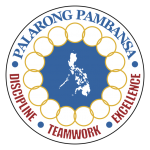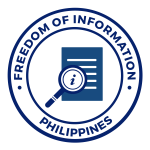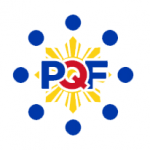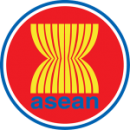
𝐍𝐄𝐀𝐏'𝐬 𝟑𝟐𝐧𝐝 𝐀𝐧𝐧𝐢𝐯𝐞𝐫𝐬𝐚𝐫𝐲: 𝐂𝐞𝐥𝐞𝐛𝐫𝐚𝐭𝐢𝐧𝐠 𝐚 𝐋𝐞𝐠𝐚𝐜𝐲 𝐨𝐟 𝐓𝐫𝐚𝐧𝐬𝐟𝐨𝐫𝐦𝐚𝐭𝐢𝐨𝐧 𝐚𝐧𝐝 𝐄𝐱𝐜𝐞𝐥𝐥𝐞𝐧𝐜𝐞
𝐴𝑠 𝑡ℎ𝑒 𝑁𝑎𝑡𝑖𝑜𝑛𝑎𝑙 𝑇𝑒𝑎𝑐ℎ𝑒𝑟𝑠 𝐴𝑐𝑎𝑑𝑒𝑚𝑦 𝑜𝑓 𝑡ℎ𝑒 𝑃ℎ𝑖𝑙𝑖𝑝𝑝𝑖𝑛𝑒𝑠 (𝑁𝐸𝐴𝑃) 𝑐𝑒𝑙𝑒𝑏𝑟𝑎𝑡𝑒𝑠 𝑖𝑡𝑠 32𝑛𝑑 𝑎𝑛𝑛𝑖𝑣𝑒𝑟𝑠𝑎𝑟𝑦, 𝑤𝑒 𝑙𝑜𝑜𝑘 𝑏𝑎𝑐𝑘 𝑎𝑡 𝑡ℎ𝑒 𝑟𝑒𝑚𝑎𝑟𝑘𝑎𝑏𝑙𝑒 𝑗𝑜𝑢𝑟𝑛𝑒𝑦 𝑜𝑓 𝑡𝑟𝑎𝑛𝑠𝑓𝑜𝑟𝑚𝑎𝑡𝑖𝑜𝑛 𝑎𝑛𝑑 𝑒𝑛𝑑𝑒𝑎𝑣𝑜𝑟 𝑡ℎ𝑎𝑡 𝑠ℎ𝑎𝑝𝑒𝑑 𝑡ℎ𝑒 𝑝𝑟𝑜𝑓𝑒𝑠𝑠𝑖𝑜𝑛𝑎𝑙 𝑑𝑒𝑣𝑒𝑙𝑜𝑝𝑚𝑒𝑛𝑡 𝑙𝑎𝑛𝑑𝑠𝑐𝑎𝑝𝑒 𝑓𝑜𝑟 𝑡𝑒𝑎𝑐ℎ𝑒𝑟𝑠 𝑎𝑛𝑑 𝑠𝑐ℎ𝑜𝑜𝑙 𝑙𝑒𝑎𝑑𝑒𝑟𝑠 𝑖𝑛 𝑡ℎ𝑒 𝑃ℎ𝑖𝑙𝑖𝑝𝑝𝑖𝑛𝑒𝑠.𝐍𝐄𝐀𝐏’𝐬 𝐓𝐫𝐚𝐧𝐬𝐟𝐨𝐫𝐦𝐚𝐭𝐢𝐨𝐧 𝐉𝐨𝐮𝐫𝐧𝐞𝐲𝐴𝑟𝑡𝑖𝑐𝑙𝑒 𝑋𝐼𝑉, 𝑆𝑒𝑐𝑡𝑖𝑜𝑛 5 (4) 𝑜𝑓 𝑡ℎ𝑒 1987 𝑃ℎ𝑖𝑙𝑖𝑝𝑝𝑖𝑛𝑒 𝐶𝑜𝑛𝑠𝑡𝑖𝑡𝑢𝑡𝑖𝑜𝑛 𝑒𝑛𝑠ℎ𝑟𝑖𝑛𝑒𝑠 𝑡ℎ𝑎𝑡 “𝑡ℎ𝑒 𝑆𝑡𝑎𝑡𝑒 𝑠ℎ𝑎𝑙𝑙 𝑒𝑛ℎ𝑎𝑛𝑐𝑒 𝑡ℎ𝑒 𝑟𝑖𝑔ℎ𝑡 𝑜𝑓 𝑡𝑒𝑎𝑐ℎ𝑒𝑟𝑠 𝑡𝑜 𝑝𝑟𝑜𝑓𝑒𝑠𝑠𝑖𝑜𝑛𝑎𝑙 𝑎𝑑𝑣𝑎𝑛𝑐𝑒𝑚𝑒𝑛𝑡.” 𝑇ℎ𝑖𝑠 𝑐𝑜𝑛𝑠𝑡𝑖𝑡𝑢𝑡𝑖𝑜𝑛𝑎𝑙 𝑚𝑎𝑛𝑑𝑎𝑡𝑒 ℎ𝑎𝑠 𝑏𝑒𝑒𝑛 𝑡ℎ𝑒 𝑔𝑢𝑖𝑑𝑖𝑛𝑔 𝑝𝑟𝑖𝑛𝑐𝑖𝑝𝑙𝑒 𝑏𝑒ℎ𝑖𝑛𝑑 𝑡ℎ𝑒 𝑒𝑠𝑡𝑎𝑏𝑙𝑖𝑠ℎ𝑚𝑒𝑛𝑡 𝑎𝑛𝑑 𝑒𝑣𝑜𝑙𝑢𝑡𝑖𝑜𝑛 𝑜𝑓 𝑁𝐸𝐴𝑃.𝑇ℎ𝑒 𝑗𝑜𝑢𝑟𝑛𝑒𝑦 𝑜𝑓 𝑁𝐸𝐴𝑃 𝑏𝑒𝑔𝑎𝑛 𝑤𝑖𝑡ℎ 𝑡ℎ𝑒 𝑖𝑠𝑠𝑢𝑎𝑛𝑐𝑒 𝑜𝑓 𝑡ℎ𝑒 𝐿𝑒𝑡𝑡𝑒𝑟 𝑜𝑓 𝐼𝑛𝑠𝑡𝑟𝑢𝑐𝑡𝑖𝑜𝑛𝑠 𝑁𝑜. 1487 𝑜𝑛 𝐷𝑒𝑐𝑒𝑚𝑏𝑒𝑟 10, 1985, 𝑤ℎ𝑖𝑐ℎ 𝑐𝑎𝑙𝑙𝑒𝑑 𝑓𝑜𝑟 𝑡ℎ𝑒 𝑖𝑛𝑠𝑡𝑖𝑡𝑢𝑡𝑖𝑜𝑛𝑎𝑙𝑖𝑧𝑎𝑡𝑖𝑜𝑛 𝑜𝑓 𝑎 𝑟𝑒𝑣𝑖𝑡𝑎𝑙𝑖𝑧𝑒𝑑 𝑝𝑟𝑜𝑔𝑟𝑎𝑚 𝑓𝑜𝑟 𝑡𝑒𝑎𝑐ℎ𝑒𝑟 𝑖𝑛-𝑠𝑒𝑟𝑣𝑖𝑐𝑒 𝑡𝑟𝑎𝑖𝑛𝑖𝑛𝑔. 𝑇ℎ𝑖𝑠 𝑑𝑖𝑟𝑒𝑐𝑡𝑖𝑣𝑒 𝑎𝑖𝑚𝑒𝑑 𝑡𝑜 𝑐𝑟𝑒𝑎𝑡𝑒 𝑎𝑛 𝑜𝑟𝑔𝑎𝑛𝑖𝑧𝑎𝑡𝑖𝑜𝑛 𝑡𝑜 𝑐𝑜𝑛𝑡𝑖𝑛𝑢𝑜𝑢𝑠𝑙𝑦 𝑡𝑟𝑎𝑖𝑛 𝑝𝑢𝑏𝑙𝑖𝑐 𝑠𝑐ℎ𝑜𝑜𝑙 𝑡𝑒𝑎𝑐ℎ𝑒𝑟𝑠, 𝑖𝑚𝑝𝑟𝑜𝑣𝑖𝑛𝑔 𝑡ℎ𝑒𝑖𝑟 𝑐𝑜𝑚𝑝𝑒𝑡𝑒𝑛𝑐𝑒 𝑖𝑛 𝑠𝑢𝑏𝑗𝑒𝑐𝑡 𝑚𝑎𝑡𝑡𝑒𝑟, 𝑡𝑒𝑎𝑐ℎ𝑖𝑛𝑔 𝑚𝑒𝑡ℎ𝑜𝑑𝑠, 𝑎𝑛𝑑 𝑠𝑐ℎ𝑜𝑜𝑙 𝑎𝑑𝑚𝑖𝑛𝑖𝑠𝑡𝑟𝑎𝑡𝑖𝑜𝑛. 𝑇ℎ𝑖𝑠 𝑣𝑖𝑠𝑖𝑜𝑛 𝑖𝑛𝑐𝑙𝑢𝑑𝑒𝑑 𝑡ℎ𝑒 𝑒𝑠𝑡𝑎𝑏𝑙𝑖𝑠ℎ𝑚𝑒𝑛𝑡 𝑜𝑓 𝑎 𝑁𝑎𝑡𝑖𝑜𝑛𝑎𝑙 𝐸𝑑𝑢𝑐𝑎𝑡𝑖𝑜𝑛 𝐿𝑒𝑎𝑟𝑛𝑖𝑛𝑔 𝐶𝑒𝑛𝑡𝑒𝑟 (𝑁𝐸𝐿𝐶) 𝑎𝑛𝑑 𝑅𝑒𝑔𝑖𝑜𝑛𝑎𝑙 𝐸𝑑𝑢𝑐𝑎𝑡𝑖𝑜𝑛 𝐿𝑒𝑎𝑟𝑛𝑖𝑛𝑔 𝐶𝑒𝑛𝑡𝑒𝑟𝑠 (𝑅𝐸𝐿𝐶𝑠).𝑂𝑛 𝑀𝑎𝑦 27, 1992, 𝑃𝑟𝑒𝑠𝑖𝑑𝑒𝑛𝑡 𝐶𝑜𝑟𝑎𝑧𝑜𝑛 𝐴𝑞𝑢𝑖𝑛𝑜 𝑎𝑛𝑑 𝐸𝑥𝑒𝑐𝑢𝑡𝑖𝑣𝑒 𝑆𝑒𝑐𝑟𝑒𝑡𝑎𝑟𝑦 𝐹𝑟𝑎𝑛𝑘𝑙𝑖𝑛 𝐷𝑟𝑖𝑙𝑜𝑛 𝑠𝑖𝑔𝑛𝑒𝑑 𝑎𝑛𝑑 𝑎𝑝𝑝𝑟𝑜𝑣𝑒𝑑 𝐴𝑑𝑚𝑖𝑛𝑖𝑠𝑡𝑟𝑎𝑡𝑖𝑣𝑒 𝑂𝑟𝑑𝑒𝑟 𝑁𝑜. 282, 𝑠𝑒𝑟𝑖𝑒𝑠 𝑜𝑓 1992, 𝑟𝑒𝑛𝑎𝑚𝑖𝑛𝑔 𝑁𝐸𝐿𝐶 𝑎𝑠 𝑁𝐸𝐴𝑃. 𝑂𝑣𝑒𝑟 𝑡ℎ𝑒 𝑦𝑒𝑎𝑟𝑠, 𝑣𝑎𝑟𝑖𝑜𝑢𝑠 𝐷𝑒𝑝𝑎𝑟𝑡𝑚𝑒𝑛𝑡 𝑜𝑓 𝐸𝑑𝑢𝑐𝑎𝑡𝑖𝑜𝑛 (𝐷𝑒𝑝𝐸𝑑) 𝑖𝑠𝑠𝑢𝑎𝑛𝑐𝑒𝑠 𝑎𝑡𝑡𝑒𝑚𝑝𝑡𝑒𝑑 𝑡𝑜 𝑠𝑜𝑙𝑖𝑑𝑖𝑓𝑦 𝑁𝐸𝐴𝑃’𝑠 𝑟𝑜𝑙𝑒 𝑎𝑠 𝑡ℎ𝑒 𝑝𝑟𝑖𝑛𝑐𝑖𝑝𝑎𝑙 𝑎𝑔𝑒𝑛𝑐𝑦 𝑓𝑜𝑟 𝑡ℎ𝑒 𝑡𝑟𝑎𝑖𝑛𝑖𝑛𝑔 𝑎𝑛𝑑 𝑑𝑒𝑣𝑒𝑙𝑜𝑝𝑚𝑒𝑛𝑡 𝑜𝑓 𝑡𝑒𝑎𝑐ℎ𝑒𝑟𝑠 𝑎𝑛𝑑 𝑠𝑐ℎ𝑜𝑜𝑙 𝑙𝑒𝑎𝑑𝑒𝑟𝑠. 𝐻𝑜𝑤𝑒𝑣𝑒𝑟, 𝑜𝑟𝑔𝑎𝑛𝑖𝑧𝑎𝑡𝑖𝑜𝑛𝑎𝑙 𝑐𝑜𝑛𝑠𝑡𝑟𝑎𝑖𝑛𝑡𝑠 𝑎𝑛𝑑 𝑜𝑣𝑒𝑟𝑙𝑎𝑝𝑝𝑖𝑛𝑔 𝑓𝑢𝑛𝑐𝑡𝑖𝑜𝑛𝑠 𝑤𝑖𝑡ℎ 𝑜𝑡ℎ𝑒𝑟 𝑏𝑢𝑟𝑒𝑎𝑢𝑠 𝑎𝑛𝑑 𝑜𝑓𝑓𝑖𝑐𝑒𝑠 𝑖𝑚𝑝𝑒𝑑𝑒𝑑 𝑖𝑡𝑠 𝑓𝑢𝑙𝑙 𝑝𝑜𝑡𝑒𝑛𝑡𝑖𝑎𝑙.𝑅𝑒𝑐𝑜𝑔𝑛𝑖𝑧𝑖𝑛𝑔 𝑡ℎ𝑒 𝑢𝑟𝑔𝑒𝑛𝑡 𝑛𝑒𝑒𝑑 𝑡𝑜 𝑒𝑛ℎ𝑎𝑛𝑐𝑒 𝑒𝑑𝑢𝑐𝑎𝑡𝑖𝑜𝑛 𝑞𝑢𝑎𝑙𝑖𝑡𝑦 𝑡ℎ𝑟𝑜𝑢𝑔ℎ 𝑝𝑟𝑜𝑓𝑒𝑠𝑠𝑖𝑜𝑛𝑎𝑙 𝑡𝑟𝑎𝑖𝑛𝑖𝑛𝑔, 𝐷𝑒𝑝𝐸𝑑 𝑡𝑜𝑜𝑘 𝑑𝑒𝑐𝑖𝑠𝑖𝑣𝑒 𝑠𝑡𝑒𝑝𝑠 𝑡𝑜𝑤𝑎𝑟𝑑𝑠 𝑁𝐸𝐴𝑃’𝑠 𝑡𝑟𝑎𝑛𝑠𝑓𝑜𝑟𝑚𝑎𝑡𝑖𝑜𝑛. 𝐼𝑛 2018, 𝑡ℎ𝑒 𝑆𝑒𝑐𝑟𝑒𝑡𝑎𝑟𝑦 𝑜𝑓 𝐸𝑑𝑢𝑐𝑎𝑡𝑖𝑜𝑛 𝑐𝑜𝑚𝑚𝑖𝑠𝑠𝑖𝑜𝑛𝑒𝑑 𝑎 𝑐𝑜𝑚𝑝𝑟𝑒ℎ𝑒𝑛𝑠𝑖𝑣𝑒 𝑠𝑡𝑢𝑑𝑦 𝑡𝑜 𝑒𝑣𝑎𝑙𝑢𝑎𝑡𝑒 𝑁𝐸𝐴𝑃’𝑠 𝑠𝑡𝑟𝑢𝑐𝑡𝑢𝑟𝑒 𝑎𝑛𝑑 𝑝𝑟𝑜𝑔𝑟𝑎𝑚𝑠. 𝐹𝑜𝑙𝑙𝑜𝑤𝑖𝑛𝑔 𝑡ℎ𝑖𝑠 𝑠𝑡𝑢𝑑𝑦, 𝑂𝑓𝑓𝑖𝑐𝑒 𝑀𝑒𝑚𝑜𝑟𝑎𝑛𝑑𝑢𝑚 2018-0016 𝑤𝑎𝑠 𝑖𝑠𝑠𝑢𝑒𝑑, 𝑐𝑟𝑒𝑎𝑡𝑖𝑛𝑔 𝑎 𝑇𝑎𝑠𝑘 𝐹𝑜𝑟𝑐𝑒 𝑡𝑜 𝑝𝑟𝑒𝑝𝑎𝑟𝑒 𝑎 𝑑𝑒𝑡𝑎𝑖𝑙𝑒𝑑 𝑑𝑒𝑠𝑖𝑔𝑛 𝑓𝑜𝑟 𝑁𝐸𝐴𝑃’𝑠 𝑡𝑟𝑎𝑛𝑠𝑓𝑜𝑟𝑚𝑎𝑡𝑖𝑜𝑛. 𝑂𝑛 𝐹𝑒𝑏𝑟𝑢𝑎𝑟𝑦 21, 2019, 𝑡ℎ𝑒 𝑇𝑎𝑠𝑘 𝐹𝑜𝑟𝑐𝑒 𝑝𝑟𝑒𝑠𝑒𝑛𝑡𝑒𝑑 𝑖𝑡𝑠 𝑟𝑒𝑐𝑜𝑚𝑚𝑒𝑛𝑑𝑎𝑡𝑖𝑜𝑛𝑠, 𝑤ℎ𝑖𝑐ℎ 𝑤𝑒𝑟𝑒 𝑎𝑝𝑝𝑟𝑜𝑣𝑒𝑑. 𝐼𝑡 𝑟𝑒𝑠𝑢𝑙𝑡𝑒𝑑 𝑖𝑛 𝑡ℎ𝑒 𝑠𝑖𝑔𝑛𝑖𝑛𝑔 𝑎𝑛𝑑 𝑎𝑝𝑝𝑟𝑜𝑣𝑎𝑙 𝑜𝑓 𝐷𝑒𝑝𝑎𝑟𝑡𝑚𝑒𝑛𝑡 𝑂𝑟𝑑𝑒𝑟 𝑁𝑜. 11, 𝑆𝑒𝑟𝑖𝑒𝑠 𝑜𝑓 2019, 𝑡𝑖𝑡𝑙𝑒𝑑 “𝐼𝑚𝑝𝑙𝑒𝑚𝑒𝑛𝑡𝑎𝑡𝑖𝑜𝑛 𝑜𝑓 𝑡ℎ𝑒 𝑁𝐸𝐴𝑃 𝑇𝑟𝑎𝑛𝑠𝑓𝑜𝑟𝑚𝑎𝑡𝑖𝑜𝑛”, 𝑏𝑦 𝑡ℎ𝑒𝑛 𝐷𝑒𝑝𝐸𝑑 𝑆𝑒𝑐𝑟𝑒𝑡𝑎𝑟𝑦 𝐿𝑒𝑜𝑛𝑜𝑟 𝑀𝑎𝑔𝑡𝑜𝑙𝑖𝑠 𝐵𝑟𝑖𝑜𝑛𝑒𝑠. 𝑇ℎ𝑒 𝑡𝑟𝑎𝑛𝑠𝑓𝑜𝑟𝑚𝑎𝑡𝑖𝑜𝑛 𝑖𝑠 𝑎𝑖𝑚𝑒𝑑 𝑡𝑜 𝑠𝑡𝑟𝑒𝑎𝑚𝑙𝑖𝑛𝑒 𝑝𝑟𝑜𝑓𝑒𝑠𝑠𝑖𝑜𝑛𝑎𝑙 𝑑𝑒𝑣𝑒𝑙𝑜𝑝𝑚𝑒𝑛𝑡, 𝑙𝑖𝑛𝑘 𝑖𝑡 𝑒𝑓𝑓𝑒𝑐𝑡𝑖𝑣𝑒𝑙𝑦 𝑤𝑖𝑡ℎ 𝑐𝑎𝑟𝑒𝑒𝑟 𝑝𝑟𝑜𝑔𝑟𝑒𝑠𝑠𝑖𝑜𝑛, 𝑎𝑛𝑑 𝑚𝑎𝑘𝑒 𝑒𝑓𝑓𝑖𝑐𝑖𝑒𝑛𝑡 𝑢𝑠𝑒 𝑜𝑓 𝑟𝑒𝑠𝑜𝑢𝑟𝑐𝑒𝑠. 𝑇ℎ𝑖𝑠 𝑖𝑠𝑠𝑢𝑎𝑛𝑐𝑒 𝑖𝑠 𝑡𝑜 𝑒𝑛𝑠𝑢𝑟𝑒 𝑡ℎ𝑎𝑡 𝑁𝐸𝐴𝑃 𝑐𝑜𝑢𝑙𝑑 𝑓𝑢𝑙𝑓𝑖𝑙𝑙 𝑖𝑡𝑠 𝑚𝑎𝑛𝑑𝑎𝑡𝑒 𝑜𝑓 𝑎𝑑𝑑𝑟𝑒𝑠𝑠𝑖𝑛𝑔 𝑡ℎ𝑒 𝑙𝑒𝑎𝑟𝑛𝑖𝑛𝑔 𝑎𝑛𝑑 𝑑𝑒𝑣𝑒𝑙𝑜𝑝𝑚𝑒𝑛𝑡 𝑛𝑒𝑒𝑑𝑠 𝑜𝑓 𝑡ℎ𝑒 𝑔𝑟𝑜𝑤𝑖𝑛𝑔 𝑛𝑢𝑚𝑏𝑒𝑟 𝑜𝑓 𝑡𝑒𝑎𝑐ℎ𝑒𝑟𝑠 𝑎𝑛𝑑 𝑠𝑐ℎ𝑜𝑜𝑙 𝑙𝑒𝑎𝑑𝑒𝑟𝑠.𝐊𝐞𝐲 𝐌𝐢𝐥𝐞𝐬𝐭𝐨𝐧𝐞𝐬 𝐚𝐧𝐝 𝐑𝐞𝐟𝐨𝐫𝐦𝐬𝑁𝐸𝐴𝑃 𝑒𝑛𝑣𝑖𝑠𝑖𝑜𝑛𝑠 𝑖𝑡𝑠𝑒𝑙𝑓 𝑎𝑠 𝑎 𝑐𝑒𝑛𝑡𝑒𝑟 𝑜𝑓 𝑒𝑥𝑐𝑒𝑙𝑙𝑒𝑛𝑐𝑒 𝑖𝑛 𝑡𝑒𝑎𝑐ℎ𝑒𝑟 𝑡𝑟𝑎𝑖𝑛𝑖𝑛𝑔 𝑎𝑛𝑑 𝑒𝑑𝑢𝑐𝑎𝑡𝑖𝑜𝑛𝑎𝑙 𝑖𝑛𝑛𝑜𝑣𝑎𝑡𝑖𝑜𝑛𝑠 𝑎𝑛𝑑 𝑎𝑛 𝑎𝑔𝑒𝑛𝑡 𝑜𝑓 𝑜𝑟𝑔𝑎𝑛𝑖𝑧𝑎𝑡𝑖𝑜𝑛𝑎𝑙 𝑎𝑛𝑑 𝑒𝑑𝑢𝑐𝑎𝑡𝑖𝑜𝑛𝑎𝑙 𝑡𝑟𝑎𝑛𝑠𝑓𝑜𝑟𝑚𝑎𝑡𝑖𝑜𝑛. 𝐼𝑡𝑠 𝑚𝑖𝑠𝑠𝑖𝑜𝑛 𝑖𝑠 𝑡𝑜 𝑑𝑒𝑣𝑒𝑙𝑜𝑝 𝑐𝑜𝑚𝑝𝑒𝑡𝑒𝑛𝑡, 𝑐𝑜𝑚𝑚𝑖𝑡𝑡𝑒𝑑, ℎ𝑖𝑔ℎ𝑙𝑦 𝑚𝑜𝑡𝑖𝑣𝑎𝑡𝑒𝑑, 𝑒𝑡ℎ𝑖𝑐𝑎𝑙, 𝑟𝑒𝑠𝑝𝑜𝑛𝑠𝑖𝑏𝑙𝑒, 𝑖𝑛𝑛𝑜𝑣𝑎𝑡𝑖𝑣𝑒, 𝑎𝑛𝑑 𝑐𝑜𝑛𝑡𝑖𝑛𝑢𝑜𝑢𝑠𝑙𝑦 𝑙𝑒𝑎𝑟𝑛𝑖𝑛𝑔 𝑡𝑒𝑎𝑐ℎ𝑒𝑟𝑠 𝑎𝑛𝑑 𝑠𝑐ℎ𝑜𝑜𝑙 𝑙𝑒𝑎𝑑𝑒𝑟𝑠. 𝑁𝐸𝐴𝑃’𝑠 𝑐𝑜𝑟𝑒 𝑣𝑎𝑙𝑢𝑒𝑠—𝑁𝑢𝑟𝑡𝑢𝑟𝑖𝑛𝑔 𝑆𝑝𝑖𝑟𝑖𝑡, 𝐸𝑥𝑐𝑒𝑙𝑙𝑒𝑛𝑐𝑒, 𝐴𝑔𝑖𝑙𝑖𝑡𝑦, 𝑃𝑟𝑜𝑓𝑒𝑠𝑠𝑖𝑜𝑛𝑎𝑙𝑖𝑠𝑚, 𝑎𝑛𝑑 𝑇𝑒𝑎𝑚𝑤𝑜𝑟𝑘—𝑟𝑒𝑓𝑙𝑒𝑐𝑡 𝑖𝑡𝑠 𝑐𝑜𝑚𝑚𝑖𝑡𝑚𝑒𝑛𝑡 𝑡𝑜 𝑡ℎ𝑒𝑠𝑒 𝑔𝑜𝑎𝑙𝑠.𝑇ℎ𝑒 𝑡𝑟𝑎𝑛𝑠𝑓𝑜𝑟𝑚𝑎𝑡𝑖𝑜𝑛 𝑜𝑓 𝑁𝐸𝐴𝑃 ℎ𝑎𝑠 𝑏𝑒𝑒𝑛 𝑚𝑎𝑟𝑘𝑒𝑑 𝑏𝑦 𝑠𝑒𝑣𝑒𝑟𝑎𝑙 𝑘𝑒𝑦 𝑟𝑒𝑓𝑜𝑟𝑚𝑠 𝑎𝑛𝑑 𝑚𝑖𝑙𝑒𝑠𝑡𝑜𝑛𝑒𝑠:1. **𝑃𝑟𝑜𝑔𝑟𝑎𝑚 𝑇𝑟𝑎𝑛𝑠𝑓𝑜𝑟𝑚𝑎𝑡𝑖𝑜𝑛**: 𝑁𝐸𝐴𝑃 𝑛𝑜𝑤 𝑐𝑙𝑎𝑠𝑠𝑖𝑓𝑖𝑒𝑠 𝑖𝑡𝑠 𝑐𝑜𝑟𝑒 𝑝𝑟𝑜𝑓𝑒𝑠𝑠𝑖𝑜𝑛𝑎𝑙 𝑑𝑒𝑣𝑒𝑙𝑜𝑝𝑚𝑒𝑛𝑡 𝑝𝑟𝑜𝑔𝑟𝑎𝑚𝑠 𝑖𝑛𝑡𝑜 𝑖𝑛𝑑𝑢𝑐𝑡𝑖𝑜𝑛 𝑝𝑟𝑜𝑔𝑟𝑎𝑚𝑠 𝑓𝑜𝑟 𝑛𝑒𝑤 𝑝𝑒𝑟𝑠𝑜𝑛𝑛𝑒𝑙, 𝑐𝑎𝑟𝑒𝑒𝑟 𝑝𝑟𝑜𝑔𝑟𝑒𝑠𝑠𝑖𝑜𝑛 𝑝𝑟𝑜𝑔𝑟𝑎𝑚𝑠 𝑓𝑜𝑟 𝑡𝑒𝑎𝑐ℎ𝑒𝑟𝑠 𝑎𝑛𝑑 𝑠𝑐ℎ𝑜𝑜𝑙 𝑙𝑒𝑎𝑑𝑒𝑟𝑠, 𝑎𝑛𝑑 𝑠𝑝𝑒𝑐𝑖𝑎𝑙 𝑝𝑟𝑜𝑔𝑟𝑎𝑚𝑠 𝑓𝑜𝑟 𝑠𝑢𝑝𝑝𝑙𝑒𝑚𝑒𝑛𝑡𝑎𝑟𝑦 𝑐𝑜𝑚𝑝𝑒𝑡𝑒𝑛𝑐𝑖𝑒𝑠.2. **𝑂𝑟𝑔𝑎𝑛𝑖𝑧𝑎𝑡𝑖𝑜𝑛𝑎𝑙 𝑇𝑟𝑎𝑛𝑠𝑓𝑜𝑟𝑚𝑎𝑡𝑖𝑜𝑛**: 𝑁𝐸𝐴𝑃’𝑠 𝑜𝑟𝑔𝑎𝑛𝑖𝑧𝑎𝑡𝑖𝑜𝑛𝑎𝑙 𝑠𝑡𝑟𝑢𝑐𝑡𝑢𝑟𝑒 𝑎𝑛𝑑 𝑡𝑟𝑎𝑖𝑛𝑖𝑛𝑔 𝑓𝑎𝑐𝑖𝑙𝑖𝑡𝑖𝑒𝑠 𝑎𝑟𝑒 𝑏𝑒𝑖𝑛𝑔 𝑢𝑝𝑔𝑟𝑎𝑑𝑒𝑑 𝑡𝑜 𝑤𝑜𝑟𝑙𝑑-𝑐𝑙𝑎𝑠𝑠 𝑠𝑡𝑎𝑛𝑑𝑎𝑟𝑑𝑠. 𝑇ℎ𝑖𝑠 𝑖𝑛𝑐𝑙𝑢𝑑𝑒𝑠 𝑎𝑑𝑑𝑟𝑒𝑠𝑠𝑖𝑛𝑔 𝑠𝑡𝑎𝑓𝑓 𝑠ℎ𝑜𝑟𝑡𝑎𝑔𝑒𝑠 𝑎𝑛𝑑 𝑖𝑚𝑝𝑟𝑜𝑣𝑖𝑛𝑔 𝑡𝑟𝑎𝑖𝑛𝑖𝑛𝑔 𝑓𝑎𝑐𝑖𝑙𝑖𝑡𝑖𝑒𝑠 𝑎𝑐𝑟𝑜𝑠𝑠 𝑡ℎ𝑒 𝑐𝑜𝑢𝑛𝑡𝑟𝑦.3. **𝑆𝑢𝑝𝑝𝑜𝑟𝑡 𝑆𝑦𝑠𝑡𝑒𝑚𝑠 𝑎𝑛𝑑 𝑀𝑒𝑐ℎ𝑎𝑛𝑖𝑠𝑚𝑠**: 𝑇ℎ𝑒 𝑜𝑝𝑒𝑟𝑎𝑡𝑖𝑜𝑛𝑎𝑙𝑖𝑧𝑎𝑡𝑖𝑜𝑛 𝑜𝑓 𝑡ℎ𝑒 𝑃ℎ𝑖𝑙𝑖𝑝𝑝𝑖𝑛𝑒 𝑃𝑟𝑜𝑓𝑒𝑠𝑠𝑖𝑜𝑛𝑎𝑙 𝑆𝑡𝑎𝑛𝑑𝑎𝑟𝑑𝑠 𝑓𝑜𝑟 𝑇𝑒𝑎𝑐ℎ𝑒𝑟𝑠 (𝑃𝑃𝑆𝑇) 𝑎𝑛𝑑 𝑠𝑖𝑚𝑖𝑙𝑎𝑟 𝑠𝑡𝑎𝑛𝑑𝑎𝑟𝑑𝑠 𝑓𝑜𝑟 𝑠𝑐ℎ𝑜𝑜𝑙 𝑙𝑒𝑎𝑑𝑒𝑟𝑠 𝑖𝑠 𝑎 𝑚𝑎𝑗𝑜𝑟 𝑓𝑜𝑐𝑢𝑠. 𝑇ℎ𝑖𝑠 𝑒𝑛ℎ𝑎𝑛𝑐𝑒𝑠 𝑠𝑦𝑠𝑡𝑒𝑚-𝑤𝑖𝑑𝑒 𝑝𝑟𝑜𝑓𝑒𝑠𝑠𝑖𝑜𝑛𝑎𝑙 𝑝𝑟𝑎𝑐𝑡𝑖𝑐𝑒 𝑞𝑢𝑎𝑙𝑖𝑡𝑦 𝑎𝑛𝑑 𝑠𝑢𝑝𝑝𝑜𝑟𝑡𝑠 𝐾 𝑡𝑜 12 𝑖𝑛𝑖𝑡𝑖𝑎𝑡𝑖𝑣𝑒𝑠, 𝑎𝑖𝑚𝑖𝑛𝑔 𝑡𝑜 𝑖𝑚𝑝𝑟𝑜𝑣𝑒 𝑙𝑒𝑎𝑟𝑛𝑖𝑛𝑔 𝑜𝑢𝑡𝑐𝑜𝑚𝑒𝑠.𝐂𝐮𝐫𝐫𝐞𝐧𝐭 𝐋𝐞𝐚𝐝𝐞𝐫𝐬𝐡𝐢𝐩 𝐚𝐧𝐝 𝐑𝐨𝐚𝐝𝐦𝐚𝐩𝑈𝑛𝑑𝑒𝑟 𝑡ℎ𝑒 𝑐𝑢𝑟𝑟𝑒𝑛𝑡 𝑙𝑒𝑎𝑑𝑒𝑟𝑠ℎ𝑖𝑝, 𝑁𝐸𝐴𝑃 ℎ𝑎𝑠 𝑒𝑚𝑝ℎ𝑎𝑠𝑖𝑧𝑒𝑑 𝑣𝑎𝑙𝑢𝑒𝑠 𝑜𝑓 𝐼𝑛𝑡𝑒𝑔𝑟𝑖𝑡𝑦, 𝐷𝑖𝑙𝑖𝑔𝑒𝑛𝑐𝑒, 𝑎𝑛𝑑 𝐶𝑜𝑚𝑝𝑒𝑡𝑒𝑛𝑐𝑒. 𝑇ℎ𝑒 𝑁𝐸𝐴𝑃 3-𝑌𝑒𝑎𝑟 𝑅𝑜𝑎𝑑𝑚𝑎𝑝 𝑜𝑢𝑡𝑙𝑖𝑛𝑒𝑠 𝑠𝑡𝑟𝑎𝑡𝑒𝑔𝑖𝑐 𝑔𝑜𝑎𝑙𝑠 𝑓𝑜𝑟 2023-2025, 𝑓𝑟𝑜𝑚 𝑠𝑒𝑡𝑡𝑖𝑛𝑔 𝑢𝑝 𝑓𝑜𝑢𝑛𝑑𝑎𝑡𝑖𝑜𝑛𝑎𝑙 𝑠𝑡𝑟𝑢𝑐𝑡𝑢𝑟𝑒𝑠 (#𝑇𝑎𝑡𝑎𝑔𝑁𝐸𝐴𝑃) 𝑡𝑜 𝑓𝑜𝑟𝑡𝑖𝑓𝑦𝑖𝑛𝑔 𝑡ℎ𝑒𝑚 (#𝑇𝑖𝑏𝑎𝑦𝑁𝐸𝐴𝑃), 𝑐𝑢𝑙𝑚𝑖𝑛𝑎𝑡𝑖𝑛𝑔 𝑖𝑛 𝑎 𝑡𝑟𝑎𝑛𝑠𝑓𝑜𝑟𝑚𝑒𝑑 𝑁𝐸𝐴𝑃 (#𝑇𝑎𝑡𝑎𝑘𝑁𝐸𝐴𝑃). 𝑇ℎ𝑒 𝑜𝑢𝑡𝑐𝑜𝑚𝑒 𝑒𝑛𝑣𝑖𝑠𝑖𝑜𝑛𝑒𝑑 𝑖𝑠 𝑎 𝑟𝑒𝑐ℎ𝑎𝑟𝑔𝑒𝑑, 𝑟𝑒𝑛𝑒𝑤𝑒𝑑, 𝑎𝑛𝑑 𝑡𝑟𝑎𝑛𝑠𝑓𝑜𝑟𝑚𝑒𝑑 𝑁𝐸𝐴𝑃 𝑡ℎ𝑎𝑡 𝑐𝑎𝑛 𝑚𝑒𝑒𝑡 𝑡ℎ𝑒 𝑝𝑟𝑜𝑓𝑒𝑠𝑠𝑖𝑜𝑛𝑎𝑙 𝑑𝑒𝑣𝑒𝑙𝑜𝑝𝑚𝑒𝑛𝑡 𝑛𝑒𝑒𝑑𝑠 𝑜𝑓 𝑡ℎ𝑒 𝐷𝑒𝑝𝑎𝑟𝑡𝑚𝑒𝑛𝑡’𝑠 𝑣𝑎𝑠𝑡 𝑤𝑜𝑟𝑘𝑓𝑜𝑟𝑐𝑒, 𝑤ℎ𝑖𝑐ℎ 𝑖𝑛𝑐𝑙𝑢𝑑𝑒𝑠 𝑜𝑣𝑒𝑟 1 𝑚𝑖𝑙𝑙𝑖𝑜𝑛 𝑝𝑒𝑟𝑠𝑜𝑛𝑛𝑒𝑙 𝑎𝑐𝑟𝑜𝑠𝑠 47,533 𝑝𝑢𝑏𝑙𝑖𝑐 𝑠𝑐ℎ𝑜𝑜𝑙𝑠 𝑎𝑛𝑑 12,694 𝑝𝑟𝑖𝑣𝑎𝑡𝑒 𝑠𝑐ℎ𝑜𝑜𝑙𝑠.𝐓𝐡𝐞 𝐅𝐮𝐭𝐮𝐫𝐞 𝐨𝐟 𝐍𝐄𝐀𝐏𝐴𝑠 𝑁𝐸𝐴𝑃 𝑐𝑒𝑙𝑒𝑏𝑟𝑎𝑡𝑒𝑠 𝑖𝑡𝑠 32𝑛𝑑 𝑎𝑛𝑛𝑖𝑣𝑒𝑟𝑠𝑎𝑟𝑦, 𝑖𝑡 𝑠𝑡𝑎𝑛𝑑𝑠 𝑎𝑡 𝑡ℎ𝑒 𝑡ℎ𝑟𝑒𝑠ℎ𝑜𝑙𝑑 𝑜𝑓 𝑎 𝑛𝑒𝑤 𝑒𝑟𝑎 𝑖𝑛 𝑝𝑟𝑜𝑓𝑒𝑠𝑠𝑖𝑜𝑛𝑎𝑙 𝑑𝑒𝑣𝑒𝑙𝑜𝑝𝑚𝑒𝑛𝑡 𝑓𝑜𝑟 𝑒𝑑𝑢𝑐𝑎𝑡𝑜𝑟𝑠. 𝑇ℎ𝑒 𝑜𝑛𝑔𝑜𝑖𝑛𝑔 𝑡𝑟𝑎𝑛𝑠𝑓𝑜𝑟𝑚𝑎𝑡𝑖𝑜𝑛 𝑎𝑖𝑚𝑠 𝑛𝑜𝑡 𝑜𝑛𝑙𝑦 𝑡𝑜 𝑒𝑛ℎ𝑎𝑛𝑐𝑒 𝑡ℎ𝑒 𝑐𝑜𝑚𝑝𝑒𝑡𝑒𝑛𝑐𝑒 𝑎𝑛𝑑 𝑚𝑜𝑡𝑖𝑣𝑎𝑡𝑖𝑜𝑛 𝑜𝑓 𝑡𝑒𝑎𝑐ℎ𝑒𝑟𝑠 𝑎𝑛𝑑 𝑠𝑐ℎ𝑜𝑜𝑙 𝑙𝑒𝑎𝑑𝑒𝑟𝑠 𝑏𝑢𝑡 𝑎𝑙𝑠𝑜 𝑡𝑜 𝑟𝑎𝑑𝑖𝑐𝑎𝑙𝑙𝑦 𝑖𝑚𝑝𝑟𝑜𝑣𝑒 𝑡ℎ𝑒 𝑙𝑒𝑎𝑟𝑛𝑖𝑛𝑔 𝑜𝑢𝑡𝑐𝑜𝑚𝑒𝑠 𝑓𝑜𝑟 𝐹𝑖𝑙𝑖𝑝𝑖𝑛𝑜 𝑙𝑒𝑎𝑟𝑛𝑒𝑟𝑠. 𝐵𝑦 𝑙𝑜𝑜𝑘𝑖𝑛𝑔 𝑏𝑎𝑐𝑘 𝑎𝑡 𝑖𝑡𝑠 𝑟𝑖𝑐ℎ ℎ𝑖𝑠𝑡𝑜𝑟𝑦 𝑎𝑛𝑑 𝑒𝑚𝑏𝑟𝑎𝑐𝑖𝑛𝑔 𝑓𝑜𝑟𝑤𝑎𝑟𝑑-𝑡ℎ𝑖𝑛𝑘𝑖𝑛𝑔 𝑟𝑒𝑓𝑜𝑟𝑚𝑠, 𝑁𝐸𝐴𝑃 𝑐𝑜𝑛𝑡𝑖𝑛𝑢𝑒𝑠 𝑡𝑜 𝑓𝑢𝑙𝑓𝑖𝑙𝑙 𝑖𝑡𝑠 𝑚𝑖𝑠𝑠𝑖𝑜𝑛 𝑜𝑓 𝑔𝑟𝑜𝑤𝑖𝑛𝑔, 𝑒𝑚𝑝𝑜𝑤𝑒𝑟𝑖𝑛𝑔, 𝑎𝑛𝑑 𝑡𝑟𝑎𝑛𝑠𝑓𝑜𝑟𝑚𝑖𝑛𝑔 𝑡ℎ𝑒 𝑛𝑎𝑡𝑖𝑜𝑛’𝑠 𝑒𝑑𝑢𝑐𝑎𝑡𝑜𝑟𝑠—𝑢𝑙𝑡𝑖𝑚𝑎𝑡𝑒𝑙𝑦 𝑐𝑜𝑛𝑡𝑟𝑖𝑏𝑢𝑡𝑖𝑛𝑔 𝑡𝑜 𝑡ℎ𝑒 𝑑𝑒𝑣𝑒𝑙𝑜𝑝𝑚𝑒𝑛𝑡 𝑜𝑓 ℎ𝑜𝑙𝑖𝑠𝑡𝑖𝑐𝑎𝑙𝑙𝑦 𝑑𝑒𝑣𝑒𝑙𝑜𝑝𝑒𝑑 𝑎𝑛𝑑 𝑟𝑒𝑠𝑖𝑙𝑖𝑒𝑛𝑡 𝐹𝑖𝑙𝑖𝑝𝑖𝑛𝑜 𝑙𝑒𝑎𝑟𝑛𝑒𝑟𝑠 𝑒𝑞𝑢𝑖𝑝𝑝𝑒𝑑 𝑤𝑖𝑡ℎ 21𝑠𝑡-𝑐𝑒𝑛𝑡𝑢𝑟𝑦 𝑠𝑘𝑖𝑙𝑙𝑠. 𝑊𝑒 𝑐𝑒𝑙𝑒𝑏𝑟𝑎𝑡𝑒 𝑡ℎ𝑖𝑠 𝑚𝑖𝑙𝑒𝑠𝑡𝑜𝑛𝑒 𝑏𝑦 ℎ𝑜𝑛𝑜𝑟𝑖𝑛𝑔 𝑁𝐸𝐴𝑃'𝑠 𝑗𝑜𝑢𝑟𝑛𝑒𝑦 𝑎𝑛𝑑 𝑙𝑜𝑜𝑘𝑖𝑛𝑔 𝑓𝑜𝑟𝑤𝑎𝑟𝑑 𝑡𝑜 𝑡ℎ𝑒 𝑝𝑟𝑜𝑚𝑖𝑠𝑖𝑛𝑔 𝑓𝑢𝑡𝑢𝑟𝑒 𝑖𝑡 𝑖𝑠 𝑠ℎ𝑎𝑝𝑖𝑛𝑔 𝑓𝑜𝑟 𝑃ℎ𝑖𝑙𝑖𝑝𝑝𝑖𝑛𝑒 𝑒𝑑𝑢𝑐𝑎𝑡𝑖𝑜𝑛. #𝑇𝑎𝑡𝑎𝑘𝑁𝐸𝐴𝑃
NATIONAL EDUCATORS’ ACADEMY OF THE PHILIPPINES (NEAP)
The National Educators Academy of the Philippines (NEAP), as it is presently configured, is the result of a progressive series of changes in its structure and position in the Department of Education. Figure 1 illustrates the development of the organizational structure of the original National Education Learning Center (NELC) from its inception under Letter of Instructions (LOI) No. 1487 in 1985 and its elaboration in 1987. LOI 1487 (1985) instructed the Ministry of Education, Culture and Sports (MECS) to design a tiered training organization comprising:
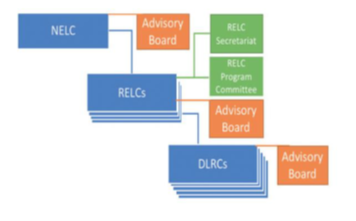
- a National Education Learning Center (NELC) located at Teachers’ Camp in Baguio City;
- Regional Learning Resource Centers (RELCs) in each Region or sub-Region; and
- Decentralized Learning Resource Centers at the Division, District and School levels.
The three components are shown in blue in Figure 1. LOI No. 1487 also stated that the “MECS may also constitute advisory boards for each center.” These are illustrated in orange to signify their optional status...
The organizational structure and governance of the RELCs were elaborated in DECS Order No. 30, s.1987. Following acknowledgment of the establishment of thirteen (13) RELCs, the Order elaborated the basic staff complement, which served as the Secretariat at each RELC, and stipulated the organization of a Program Committee at each RELC. The addition of a RELC Secretariat and RELC Program Committee are illustrated in green in Figure 1.
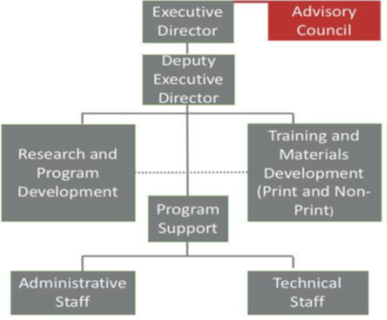 Figure 2: NEAP-CO Organizational Structure established by Administrative Order No. 282, s. 1992 and DECS Order 25, s. 1997.
Figure 2: NEAP-CO Organizational Structure established by Administrative Order No. 282, s. 1992 and DECS Order 25, s. 1997.- Administrative Order No. 282, s. 1992 renamed NELC as the ‘National Educators Academy of the Philippines’ and added two components to the organizational structure: (1) Research and Program Development; and (2) Training and Materials Development (Figure 2)
- DECS Order No. 25, s. 1997, among other things, added to the organizational structure by constituting the Advisory Council of NEAP (illustrated in red in Figure 2) and specified the establishment of a NEAP Office at the Central Office of the DECS and NEAP Zonal Offices in Baguio City, Cebu City, and Davao City.
The establishment of NEAP in the Region through DO 111, s. 2009 involved renaming RELCs as “National Educators Academy of the Philippines in the Region” and transferring and converting “RELC facilities under the supervision and ownership of the NEAP in the Region.” The Enclosure to
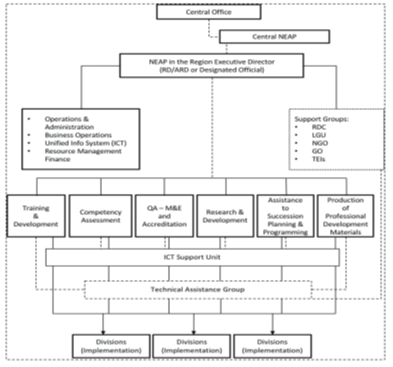
DO 111, s. 2009 provided an organizational structure for NEAP in the Region (Figure 3). The organizational structure depicted only the Head of the organization and the service areas, thereby “empower[ing] the Region to make decisions appropriate to their unique conditions.”
Figure 2: NEAP-CO Organizational Structure established by Administrative Order No. 282, s. 1992 and DECS Order 25, s. 1997
October 30, 2023 DA, S. 2023 – Advisory on the Conduct of the Division Rollout ILT
NEAP Professional Development Programs for the SY 2024-2025 IN-SERVICE TRAINING (INSET)
AUG 29, 2024 – NEAP ORGANIZATION AND PROGRAM TRANSITION PHASE
AUG 6, 2021 DO 030, S. 2021 – MULTI-YEAR IMPLEMENTING GUIDELINES ON THE ALLOCATION AND UTILIZATION OF THE HUMAN RESOURCE DEVELOPMENT FUND FOR TEACHERS AND SCHOOL LEADERS
- The Department of Education (DepEd) issues the enclosed Multi-Year Implementing Guidelines on the Allocation and Utilization of the Human Resource Development Fund for Teachers and School Leaders.
- These Guidelines aim to promote and support the professional development of DepEd public school teachers and school leaders.
- All DepEd ...
MAY 30, 2023 DO 011, S. 2019 – IMPLEMENTATION OF THE NEAP TRANSFORMATION
- As the Department of Education (DepEd) renews its focus on making decisive gains in upgrading education quality, the strengthening of the professional training and development of its 800,000 teachers is urgent and necessary. Towards this end, DepEd is embarking on a major reform initiative, the organizational and program transformation ...










